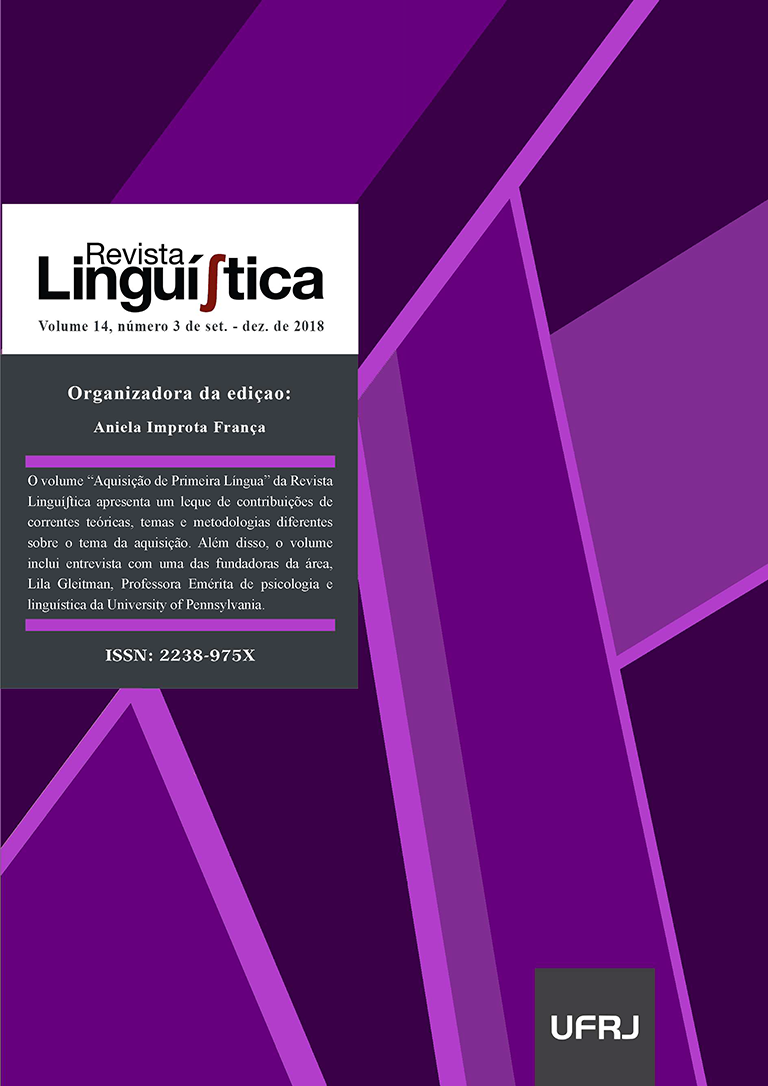Distributional learning in Brazilian Portuguese: a computational study
DOI:
https://doi.org/10.31513/linguistica.2018.v14n3a21419Keywords:
language acquisition, distributional learning, word categories, computational modeling.Abstract
In this paper, we address the problem of learning word categories during language acquisition. Our approach is computational: we built a model based on Redington et al. (1998) in order to investigate the informativeness of distributional information to the categorization of words. The data provided to the learner comes from two corpora of child-directed speech in Brazilian Portuguese. Specifi cally, the experiments presented here evaluate the informativeness of various contextual windows regarding a given target word, that is, which contexts are more or less informative of a word category. Our results show that local contexts are highly informative and that distributional information is useful as a source of categorial information.
---
DOI: http://dx.doi.org/10.31513/linguistica.2018.v14n3a21419
Downloads
Downloads
Published
Issue
Section
License
Authors who publish in the Revista Linguí∫tica agree with the following terms:
The authors maintain their rights, ceding to the journal the right to first publication of the article, simultaneously submitted to a Creative Commons license permitting the sharing with third-parties of published content as long as it mentions the author and its first publication in the Revista Linguí∫tica.
Authors may enter into additional agreements for the non-exclusive distribution of their published work (for example, posting in online institutional or non-profit repositories, or book chapters) so long as they acknowledge its initial publication in the Revista Linguí∫tica.

The journal Revista Linguí∫tica is published by the Post-Graduate program in Linguistics of UFRJ and employs a Creative Commons - Attribution-NonCommercial 4.0 International (CC-BY-NC).









